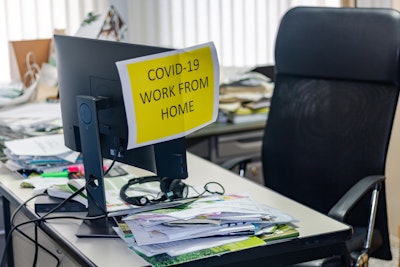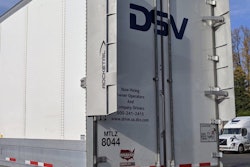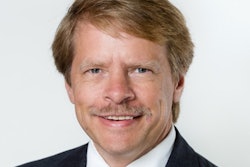 During the virtual CCJ Symposium, May 27, A fleet panel of HR executives will share strategies for keeping drivers healthy and productive while working from a remote office environment.
During the virtual CCJ Symposium, May 27, A fleet panel of HR executives will share strategies for keeping drivers healthy and productive while working from a remote office environment.Keeping drivers safe and productive amid the coronavirus pandemic has taken an all hands on deck approach by fleet management and office staff, even when many are working remotely from home.
On May 27, a panel of human resource specialists will discuss strategies their fleets are using during the virus outbreak to keep drivers safe, healthy and mentally well for the virtual CCJ Symposium, “Upshift: How to Find Opportunities During This Challenging Time.”
One of the panelists is Jessie Burnette, chief people officer of Hirschbach (CCJ Top 250, No. 65), a refrigerated truckload carrier with more than 2,000 power units.
During the COVID-19 crisis, Burnette has been involved in creating company task forces to support drivers, office staff and their families. One task force is run jointly by the company’s wellness team and HR department to provide a 24/7 COVID hotline.
Fleet executives, find out how to keep drivers and keep them safe.
Experts will discuss the challenges drivers are facing on the road and the creative ways fleets are keeping them safe, motivated and moving — during our free, virtual CCJ Symposium on May 27-28. Get Details.
Another resource is a “doctor on demand” service that Hirschbach offers through a local clinic in Iowa to connect workers and their family members to a doctor via video conferencing for diagnosis and treatments, she said.
Hirschbach keeps a detailed list of anyone in the company who has decided to self-quarantine out of precaution or as a result of a positive COVID-19 test per doctor recommendations. A task force follows up with everyone in the quarantine group daily, she said, “to make sure we are providing a support system for all of them.”
All new drivers for the Dubuque, Iowa-based company go through a required health and wellness program during orientation training that lasts four hours and covers topics that include functional movement, diaphragmatic breathing, and eating with intent, Burnette explained.
Drivers can then choose to enroll in the company’s ongoing health and wellness program to receive weekly coaching as well as kits and meals to take with them on the road. Hirschbach’s wellness team is available to drivers’ families and to all office staff and their families.
About 50% of drivers sign up for the ongoing wellness program, Burnette said, and about 25% participate in the program on their own using resources the company provides through a Facebook group and mobile app. The resources feature audio training to quit smoking and to learn mindful meditation, among other topics, she noted.
During the pandemic, Hirschbach has been using Microsoft Teams for company-wide communications. Drivers can view live and recorded videos of company messages from the president and other spokespeople using the tablets in their vehicles when they are not driving.
Microsoft Teams has benefitted the company as it transitioned its office to a remote workforce in late March.
“The ‘aha’ moment is that we can still function as company, and be as efficient as before, if not more efficient. We are proving that we can do it and showing drivers and mechanics that we can still function, and that we can now make it through this,” she said.
The full agenda for the virtual CCJ Symposium can be found here, along with registration information.













